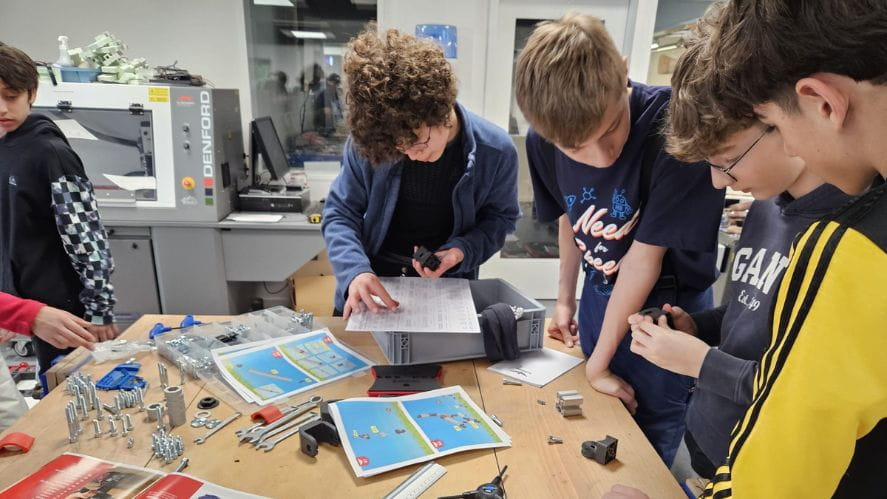We use cookies to improve your online experiences. To learn more and choose your cookies options, please refer to our cookie policy.
Join Our Open Evening!
24 February 2026 | 17:00 - 19:00 | LCIS

Rockets firing from the top of a snowy mountain and plutonium being transported at speed on a sledge sounds like a scene from a James Bond movie. But this was the culmination of two challenges taken up by six students from LCIS who took part in this year’s Nord Anglia Secondary STEAM Festival. (No need for alarm – no real plutonium was used in this adventure!)
Teams from Nord Anglia schools across Europe arrived at Beau Soleil school in the alpine town of Villars, with the LCIS team being accompanied by our Head of Design Technology, Siobhan Newell.
The festival consisted of STEAM activities involving everyone, and a selection of workshops that the students could choose from, along with some social moments.
The combination of hands-on practical projects, problem-solving and data analysis gave the students a robust sense of what STEAM is all about, as well as a lot of fun.
Ms Newell points out that STEAM is greater than the sum of its parts. She says:
“STEAM (Science, Technology, Engineering, Arts and Maths) education is an approach to learning that encompasses these subjects in an interdisciplinary way. More than just learning content or skills in these areas the philosophy of STEAM is about fostering a growth mindset and critical thinking through creative problem-solving, combining knowledge with hands-on learning.”
Just like Bond and his ever-expanding band of associates and enemies!
STEAM Challenges
On Day 1 the teams got stuck into rocket building, with the main body of the rocket provided as a kit that the teams had to work out how to assemble. Our team split into twos with two students focussing on the kit build, two students designing and making the rocket’s fins (not included in the kit), and two working on the graphics of the rocket’s livery.
For the second challenge, each team was given the same defined set of materials to use along with some parameters. The challenge was to create a device that could transport three balls representing ‘uranium’ or other hazardous element, and a cup of water representing radioactive waste, down Villars’ toboggan run.
Day 2 was up the mountain. The rockets were launched, and teams made six descents on their sledges with their delicate cargo. Points were awarded or deducted depending on the time taken for the descent, the number of balls safely transported and amount of water remaining. A strategic element added excitement as teams had to decide whether to abandon fallen balls to save time but risk another team stealing them and leaving them with fewer available points for the next run or stop to recover them thus losing points for time.
To add to the action a laser biathlon experience looked at how the body works and reacts to vigorous exercise vs the need for stillness and a steady aim!
Talks
In between the sessions spent on these hands-on activities, attendees enjoyed a talk entitled “eXploring the Solar System: a Journey through History, Space and Engineering” from Emma Pogglioni, President of EPFL Xplore - a student-led space robotics project from EPFL and attended their chosen workshops.
Data
Day 3 focussed on data. Using the data from their rocket and sledge challenges, the teams looked at data analysis and presentation, including graphical communication of data – I vital part of any scientific undertaking.
Taking STEAM out of the classroom and the lab and into action and competition gives our students a sense of real-world applications of their learning, a chance to widen their experience of teamwork and share with a wider group.
Embracing opportunities to take part in events like the STEAM festival is part of the rich experience we offer our students at LCIS.